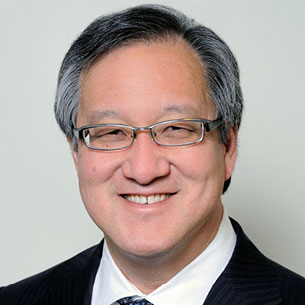I am pleased to announce that nearly 6,000 abstracts were submitted for the 2015 ASCO Annual Meeting, a 7.5% increase from last year’s record total.
This explosion of data and knowledge is why I chose the 2015 Annual Meeting theme “Illumination and Innovation: Transforming Data into Learning.” With data as a shared resource, we can accelerate learning from each other and from our patients, sharing new insights and making faster strides against cancer.
Today in the United States, we are challenged to reinvent how we practice medicine in response to society’s demand for higher-quality and more affordable health care and a more efficient clinical research enterprise. A shift has started from reimbursement models based on production to models based on quality and outcomes.
The survival of existing models and the success of developing models of community practice and clinical research will depend on meeting these challenges successfully. At the same time, demands on academic oncologists to increase practice revenues have decreased satisfaction with the balance of academic and clinical work. Now is the time when willingness to design and carefully study new models of providing cancer care will hold us in good stead. If change is inevitable, let us get out in front and lead.
As physician–scientists, we are accustomed to using data to generate and test new models. The arrival of digital health provides an invaluable source of new data from which to generate knowledge and learning. Blending big health data and medical informatics now gives us a tool with which to accelerate learning, a concept described as rapid learning health systems.
Data sets are now derived from real-world patient experiences. Consequently, the data they contain reflect how patients with cancer are treated in the daily practice of medicine, the benefit and harm patients experience, the efficiency of care delivery, and most interestingly, the variation in all of this. If we can match these data sets with data on patient outcomes and consumption of medical resources, we will be positioned to contribute new knowledge to the health care reform discussion.
CancerLinQ™ is ASCO’s version of a rapid learning health system applied to oncology and the first such innovation in medicine. We anticipate that CancerLinQ will provide insights for the design of new models of cancer care delivery that are sustainable and that address societal objectives, provide supportive mechanisms to sustain a thriving community practice base, and allow the voice of the physician to resonate. By sharing our data, we all receive, in return, something greater than the sum of the parts.
Research presented at the 2015 Annual Meeting will highlight innovation and technologic advances that can improve every aspect of the patient experience—from prevention, to diagnosis, to treatment, to survivorship.
New for 2015
Based on feedback from last year’s Annual Meeting, we are offering three Special Sessions with increased focus on molecular pathways that control cell growth, apoptosis, and immune regulation. We are entering an era in which traditional anatomic classifications of cancer diseases will yield to pathway-driven definitions of diseases that increasingly drive therapeutic decision making. Plan to attend these Clinical Science Symposia on Saturday, Sunday, and Monday mornings.
More than half of our attendees at the Annual Meeting are from outside the United States, making this an ideal venue for cross-cultural exchange of ideas, experiences, and solutions. I am very excited to announce the inaugural Global Oncology Symposium, which took place Friday, May 29, 1:00 PM-5:45 PM, in room S100a. This Special Session offered multidimensional perspectives, including geographic differences in the underlying biology and treatment of gastric cancer, access to care, and health care delivery systems. David Kerr, MD, DSc, was introduced as the founding editor of the new ASCO Global Oncology Journal, and he shared his vision for this much-needed home for scientific research of global cancer care.
Cancer is not just about one patient and one doctor—it involves an entire community of caregivers working together on all aspects of the patient’s treatment. The 2015 ASCO Annual Meeting is a transformative opportunity to learn the latest strategies that can immediately be used in the clinic or in practice.
Thank you for joining me in Chicago. I look forward to seeing you.


Recent posts